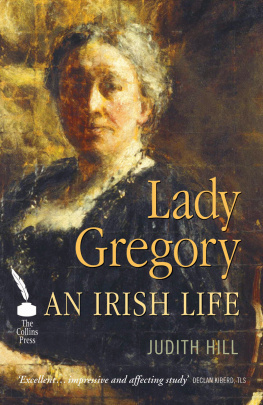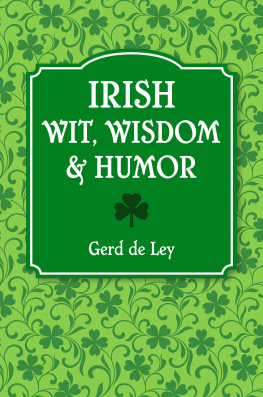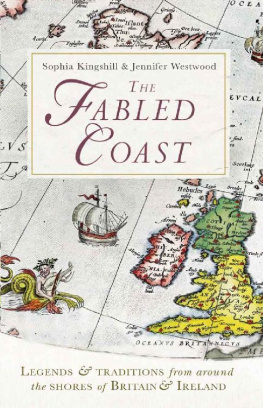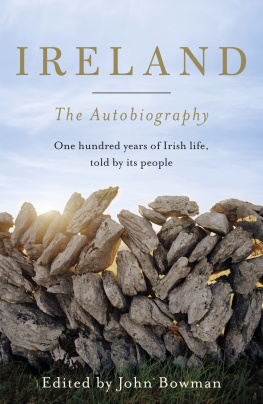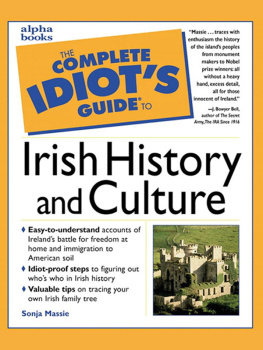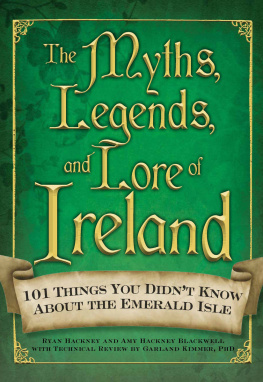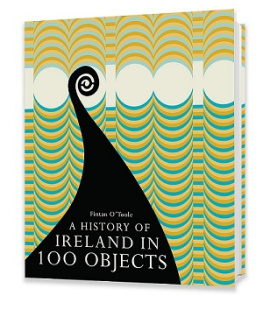Copyright 2013 Read Books Ltd.
This book is copyright and may not be reproduced or copied in any way without the express permission of the publisher in writing
British Library Cataloguing-in-Publication Data
A catalogue record for this book is available from the British Library
Lady Wilde
Lady Wilde was born Jane Francesca Elgee in Dublin in 1821. During her life, she was a staunch Irish nationalist, and began publishing poetry during the 1840s in The Nation, under the pseudonym Speranza. Much of her work was Pro-Irish and anti-British; when she wrote commentary calling for armed revolution in Ireland, the British authorities at Dublin Castle shut down the paper. In 1854, Wilde gave birth to her son, Oscar, who went on become one of the best-known authors of the nineteenth century. In later life, she supplemented her income by writing for fashionable magazines, and collecting and publishing Irish fairy tales. Lady Wilde contracted bronchitis in January of 1896 and, dying, asked for permission to see Oscar, who was in prison on charges of gross indecency with other men. Her request was refused. She died at her home a month later, aged 74.
CONTENTS.
PREFACE.
THE three great sources of knowledge respecting the shrouded part of humanity are the language, the mythology, and the ancient monuments of a country.
From the language one learns the mental and social height to which a nation had reached at any given period in arts, habits, and civilization, with the relation of man to man, and to the material and visible world.
The mythology of a people reveals their relation to a spiritual and invisible world; while the early monuments are solemn and eternal symbols of religious faithrituals of stone in cromlech, pillar, shrine and tower, temples and tombs.
The written word, or literature, comes last, the fullest and highest expression of the intellect and culture, and scientific progress of a nation.
The Irish race were never much indebted to the written word. The learned class, the ollamhs, dwelt apart and kept their knowledge sacred. The people therefore lived entirely upon the traditions of their forefathers, blended with the new doctrines taught by Christianity; so that the popular belief became, in time, an amalgam of the pagan myths and the Christian legend, and these two elements remain indissolubly united to this day. The world, in fact, is a volume, a serial rather, going on for six thousand years, but of which the Irish peasant has scarcely yet turned the first page.
The present work deals only with the mythology, or the fantastic creed of the Irish respecting the invisible worldstrange and mystical superstitions, brought thousands of years ago from their Aryan home, but which still, even in the present time, affect all the modes of thinking and acting in the daily life of the people.
Amongst the educated classes in all nations, the belief in the supernatural, acting directly on life and constantly interfering with the natural course of human action, is soon dissipated and gradually disappears, for the knowledge of natural laws solves many mysteries that were once inexplicable; yet much remains unsolved, even to the philosopher, of the mystic relation between the material and the spiritual world. Whilst to the massesthe uneducated who know nothing of the fixed eternal laws of nature, every phenomenon seems to result from the direct action of some nonhuman power, invisible though ever present; able to confer all benefits, yet implacable if offended, and therefore to be propitiated.
The superstition, then, of the Irish peasant is the instinctive belief in the existence of certain unseen agencies that influence all human life; and with the highly sensitive organization of their race, it is not wonderful that the people live habitually under the shadow and dread of invisible powers which, whether working for good or evil, are awful and mysterious to the uncultured mind that sees only the strange results produced by certain forces, but knows nothing of approximate causes.
Many of the Irish legends, superstitions, and ancient charms now collected were obtained chiefly from oral communications made by the peasantry themselves, either in Irish or in the Irish-English which preserves so much of the expressive idiom of the antique tongue.
These narrations were taken down by competent persons skilled in both languages, and as far as possible in the very words of the narrator; so that much of the primitive simplicity of the style has been retained, while the legends have a peculiar and special value as coming direct from the national heart.
In a few years such a collection would be impossible, for the old race is rapidly passing away to other lands, and in the vast working-world of America, with all the new influences of light and progress, the young generation, though still loving the land of their fathers, will scarcely find leisure to dream over the fairy-haunted hills and lakes and raths of ancient Ireland.
I must disclaim, however, all desire to be considered a melancholy Laudatrix temporis acti. These studies of the Irish past are simply the expression of my love for the beautiful island that gave me my first inspiration, my quickest intellectual impulses, and the strongest and best sympathies with genius and country possible to a womans nature.
FRANCESCA SPERANZA WILDE.
ANCIENT LEGENDS.
INTRODUCTION.
THE ancient legends of all nations of the world, on which from age to age the generations of man have been nurtured, bear so striking a resemblance to each other that we are led to believe there was once a period when the whole human family was of one creed and one language. But with increasing numbers came the necessity of dispersion; and that ceaseless migration was commenced of the tribes of the earth from the Eastern cradle of their race which has now continued for thousands of years with undiminished activity.
From the beautiful Eden-land at the head of the Persian Gulf, where creeds and culture rose to life, the first migrations emanated, and were naturally directed along the line of the great rivers, by the Euphrates and the Tigris and southward by the Nile; and there the first mighty cities of the world were built, and the first mighty kingdoms of the East began to send out icolonies to take possession of the unknown silent world around them. From Persia, Assyria, and Egypt, to Greece and the Isles of the Sea, went forth the wandering tribes, carrying with them, as signs of their origin, broken fragments of the primal creed, and broken idioms of the primal tonguethose early pages in the history of the human race, eternal and indestructible, which hundreds of centuries have not been able to obliterate from the mind of man.
But as the early tribes diverged from the central parent stock, the creed and the language began to assume new forms, according as new habits of life and modes of thought were developed amongst the wandering people, by the influence of climate and the contemplation of new and striking natural phenomena in the lands where they found a resting-place or a home. Still, amongst all nations a basis remained of the primal creed and language, easily to be traced through all the mutations caused by circumstances in human thought, either by higher culture or by the debasement to which both language and symbols are subjected amongst rude and illiterate tribes.



